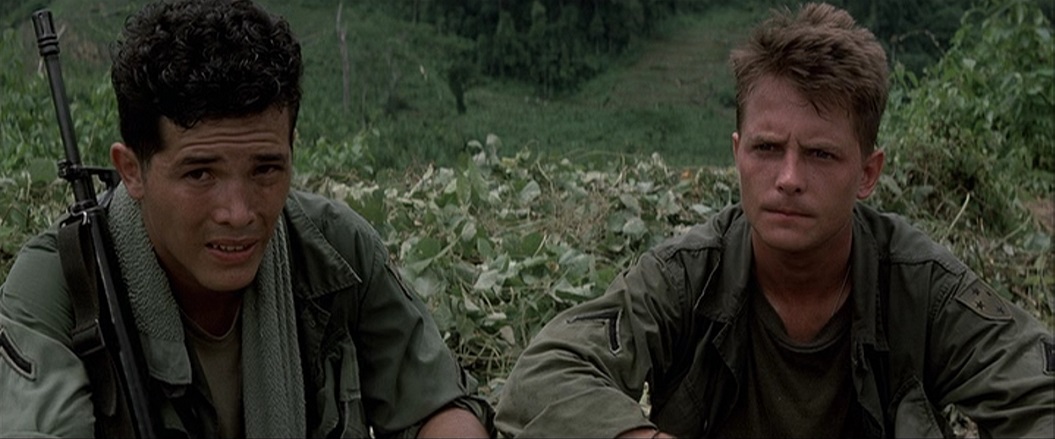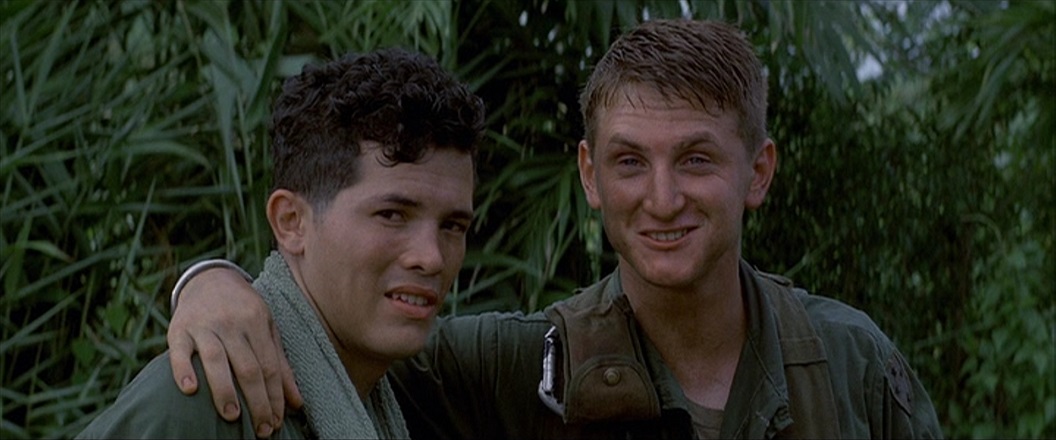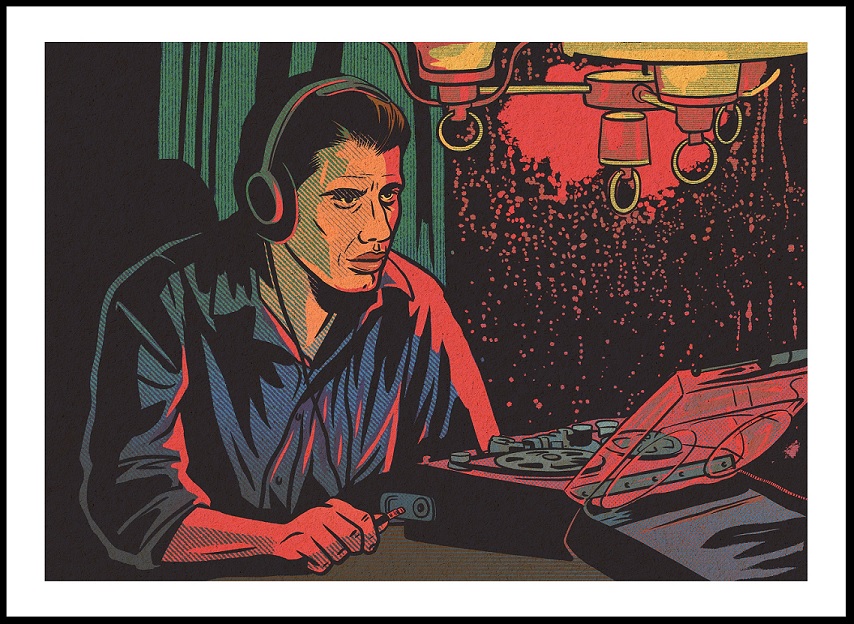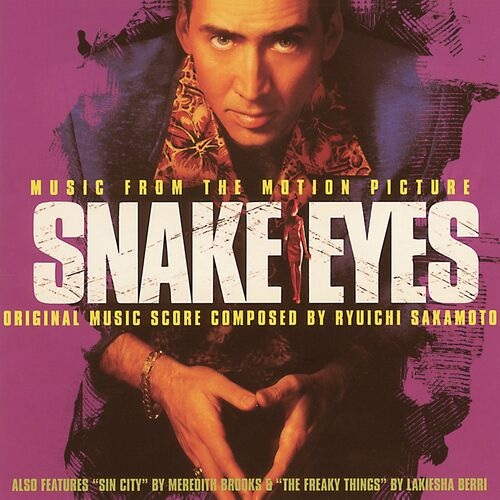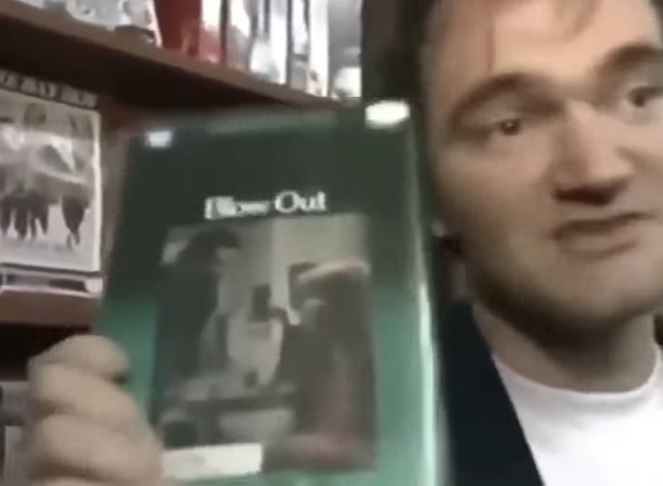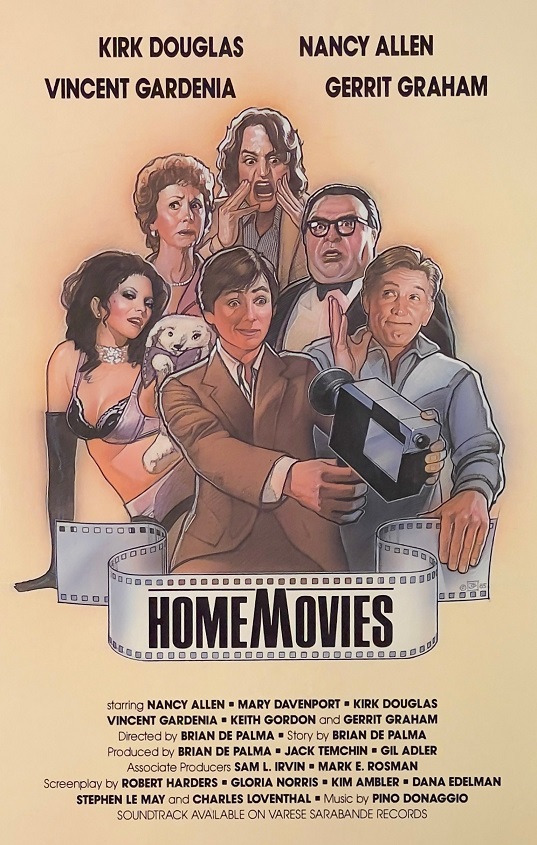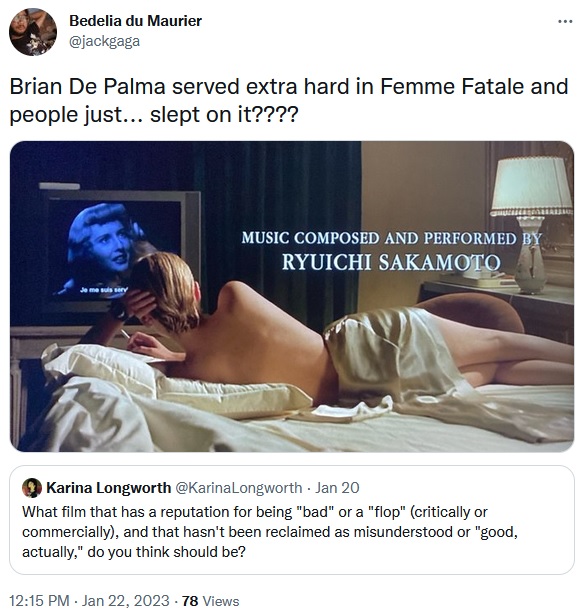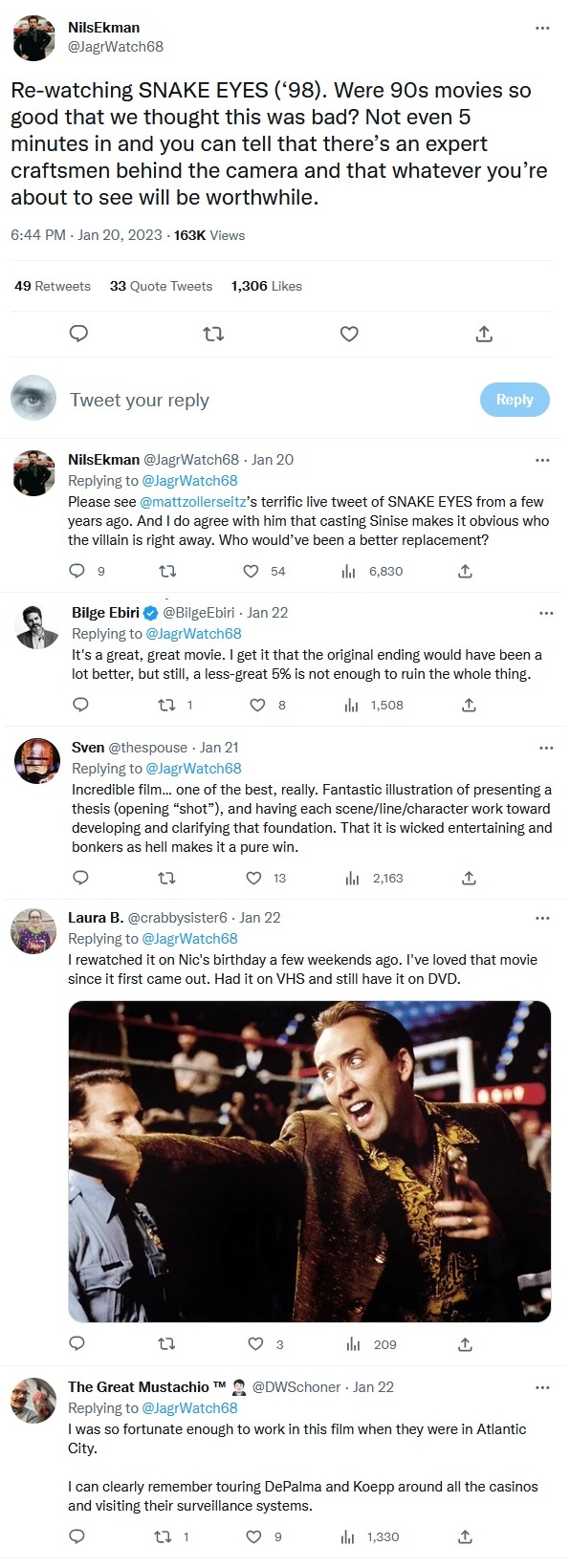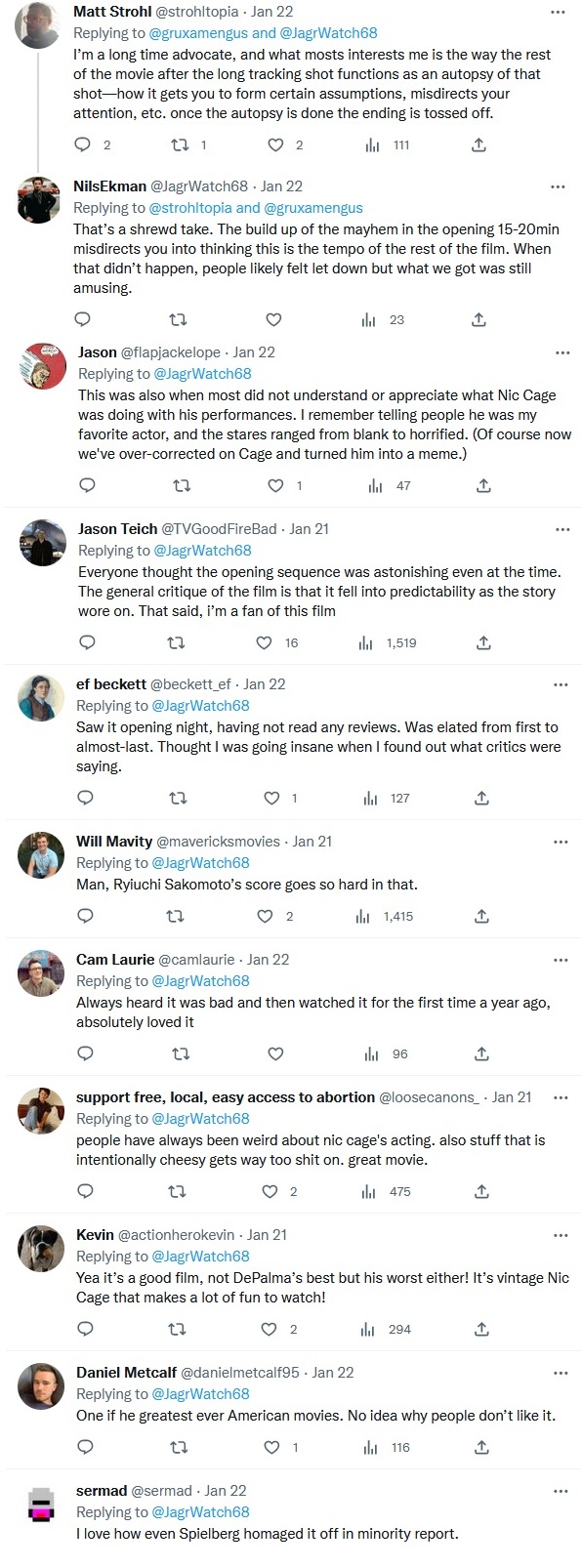"CONFIDENTLY EXPRESSED, UNREFLECTIVE ASSERTIONS PRESENTED AS GOSPEL"

"Despite Tarantino’s zeal for the cinema of this era, his prose is a chore to read," Jonathan Kirshner writes in his review of Quentin Tarantino's Cinema Speculation, at New Left Review's Sidecar blog. "The style is exhausting, characterized by an avalanche of obscenities which are presumably intended to seem honest and unbuckled, but which strike the reader as a tiresome affectation. Similarly disfiguring is the endless stream of unmotivated name dropping (‘The comedian Robert Wuhl once told me, “I’ve seen Bullitt four times and I couldn’t tell you what the plot is about’’’), all in the service of confidently expressed, unreflective assertions presented as gospel. This is not writing, it is talking – endless talking, and it is more than a little repetitive, as if the chapters were written individually and never intended to form a coherent whole."
Here's a bit more of an excerpt from Kirshner's review:
The movie chapters are a little better – or at least more distinct – but collectively they amount to something less than a mixed bag. Things get off to an unpromising start with Bullitt, fifteen pages that are essentially a mash note to Steve McQueen, with nary a glimmer of insight into this rich and multifaceted film. The treatment of Dirty Harry, in contrast, is a pleasant surprise. In the best and most thoughtful chapter in the book, Tarantino shines, contextualizing the film in the context of director Don Siegel’s long career, and engages with uncharacteristic nuance in the debate surrounding the film’s problematic politics. Even here, though, the tendency to speak in breathless soundbites (‘If Dirty Harry were a boxer it would be Mike Tyson in his knockout prime’) derails the momentum of sustained analysis. Still, if every chapter in Cinema Speculation flashed the strengths of this one, it would be worth pushing through all the braggadocio and monologuing.Perhaps the biggest bust in this volume is its treatment of The Getaway. A still from that production graces the cover, featuring the filmmaker’s favorites Sam Peckinpah and McQueen, so presumably Tarantino would have something to say about this one. Instead we are treated to twenty-five pages of not very much. Our raconteur picks apart a few holes in the plot, and tells us that ‘I asked Peter [Bogdanovich] what he thought about [the] novel.’ Observations about the movie, however, are limited to tossed-off remarks such as ‘It’s my feeling that Ali McGraw’s moment to moment work in this film is essential’ and ‘I used to like the ending more than I do now.’ The Getaway is no masterpiece, but it is a film worth talking about, and even taking seriously. Christina Newland, in a thoughtful, engaging and enthusiastic essay for Little White Lies, says more in a thousand words than Tarantino offers here.
Sisters provides the opportunity for an appreciation of the early films of Brian de Palma, and its long discussion of Taxi Driver knows enough to ask a key question: is this a movie about a racist or is it a racist movie? Unfortunately, yet again, over thirty pages there is not a single moment of critical acumen (nor any appreciation of the filmmaking). Instead, now too recognizably on brand, serious engagement with one of the landmarks of the New Hollywood is eschewed in favour of here’s-what-I-think-off-the-top-of-my-head. There is a time and place for such things – check out Tarantino’s brilliant revisionist interpretation (in character) of Top Gun from the 1994 movie Sleep with Me – but this isn’t it. Cinema Speculation gives the impression that any hint of visual analysis or even appreciation would fall under the category of highbrow – which, to Tarantino, is the ultimate obscenity. According to the index (yes, the book has a fucking index, probably to help people look themselves up), Alfred Hitchcock appears over twenty-five times in the text. Yet there is no engagement with the marvellous Hitchcockian flourishes that characterize some of Taxi Driver’s finest scenes. Instead, the discussion is limited to observations like ‘Travis was a fucking loon,’ and ‘no fucking way was Travis in Vietnam’ (um, okay, if you say so); and a report of the audience reaction at a favorite grindhouse cinema: ‘I dug it, they dug it, and as an audience, we dug it.’ Say what you will about these comments, but they are definitely not highbrow.
Quentin Tarantino is an accomplished filmmaker, and, necessarily, a capable artisan. One could not tell that from this book, which reads like a movie geek perhaps terrified at being seen as a movie nerd. This likely accounts for some of the odd gaps in the narrative, which runs away screaming from anything that might be remotely characterized as thoughtful. Robert Altman, whose many seventies landmarks include McCabe & Mrs. Miller, The Long Goodbye and Nashville, is barely noted, invoked primarily as the target of ad hominem broadsides; Alan J. Pakula (Klute, The Parallax View) goes unmentioned; Woody Allen’s output is reduced to a few words of high praise for the ‘early funny ones’. This list could easily be elaborated, but these examples raise a larger, more general concern.
Cinema Speculation presents itself as a celebration of ‘the most challenging movies of the greatest movie making era in the history of Hollywood.’ A sentiment that I (and many others) share. What is, finally, most bizarre about its baker’s dozen of features is not so much the idiosyncratic films included, but those that are left out. In trying to make the case that the seventies were indeed a golden age, it is unlikely that this set of movies would convince anybody of anything (although Taxi Driver soars, and you could argue the case for a couple of the others). Even Tarantino isn’t sold on some of them, largely deploying Hardcore as a vehicle to trash Paul Schrader (this is a book that pauses to settle numerous scores), and noting ‘Nothing that deep happens in Paradise Alley. It’s all surface.’ As for Fun House, Tarantino rates Hell Night from the same year as ‘far superior’. I haven’t seen Hell Night, which concerns a fraternity hazing ritual wherein four pledges are dropped off at an (apparently) abandoned mansion, but Roger Ebert’s one-star review plausibly describes it as ‘a relentlessly lackluster example of the Dead Teenager Movie.’
Maybe for some Hell Night is a towering achievement of the New Hollywood era, but while reading page after page about low-budget slasher flicks of modest repute, it is hard not to think of fifty treasures from that extraordinary decade left on the cutting room floor. Of course, much of this may simply boil down to questions of taste. In my view, Peter Yates’s The Friends of Eddie Coyle is one of the landmarks of the seventies film – among its enormous strengths: razor-sharp dialogue, bravura location work, and the contributions of the players, including, arguably, Robert Mitchum’s greatest performance. Yates’s Mother, Juggs, & Speed, by contrast, is an unmotivated, incoherent mess, an embarrassment to its distinguished cast, and littered with car crashes about once a reel as if fearful the audience would otherwise nod off (or walk out). In Tarantino’s assessment, Eddie Coyle is ‘overrated’ and Juggs ‘underrated.’ For those who share that view, Cinema Speculation might be a book worth reading.





